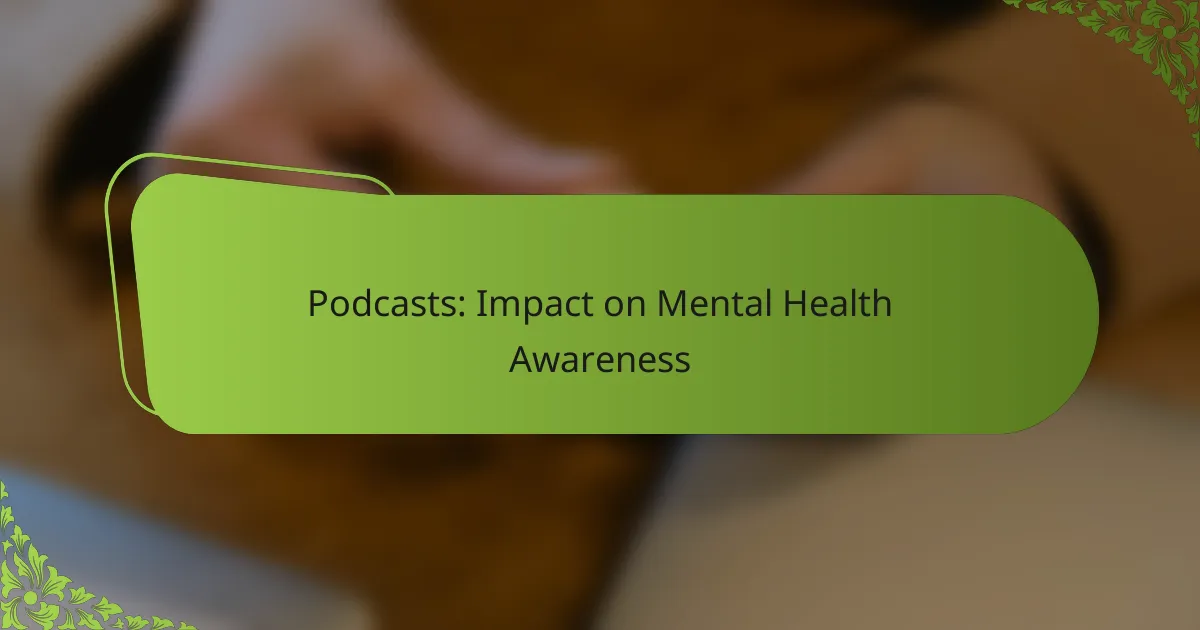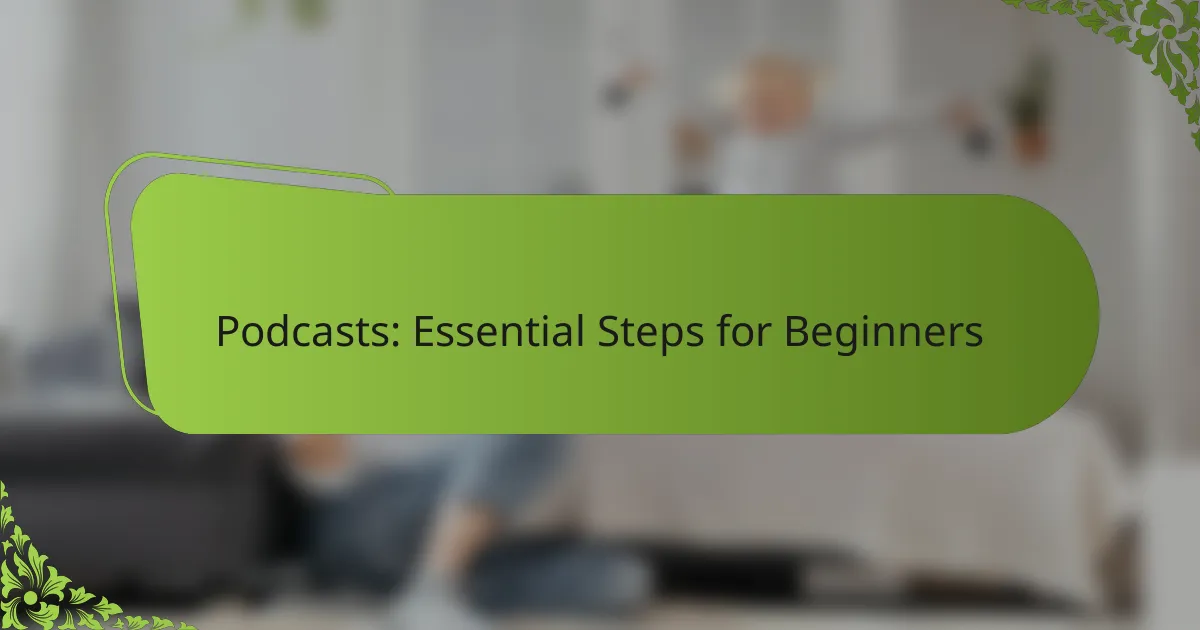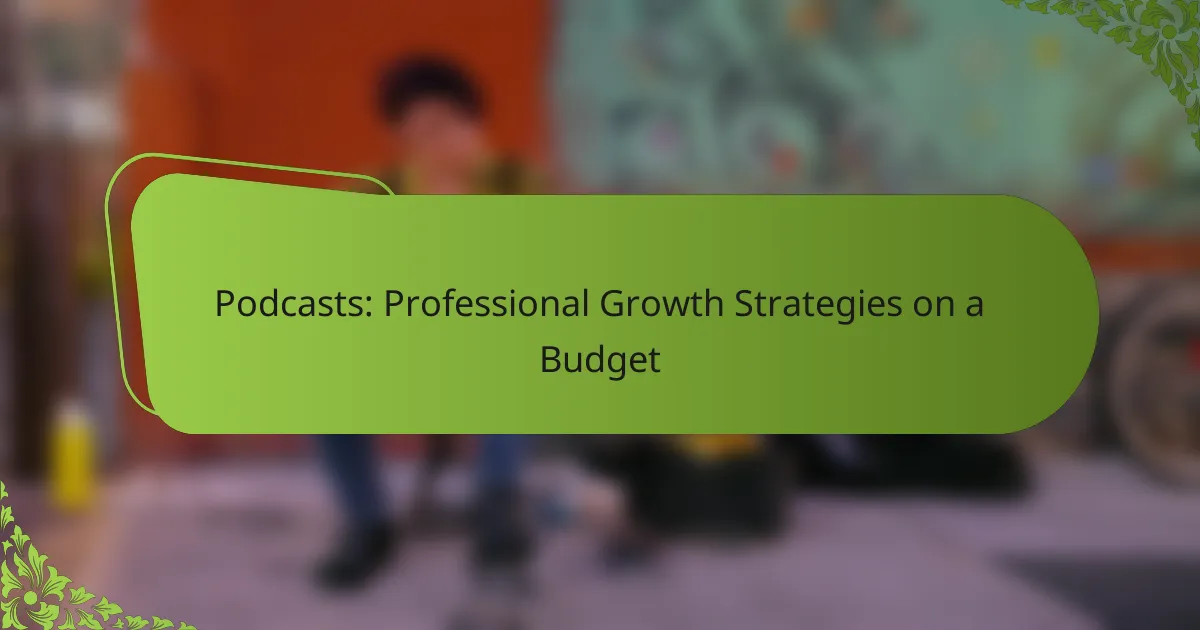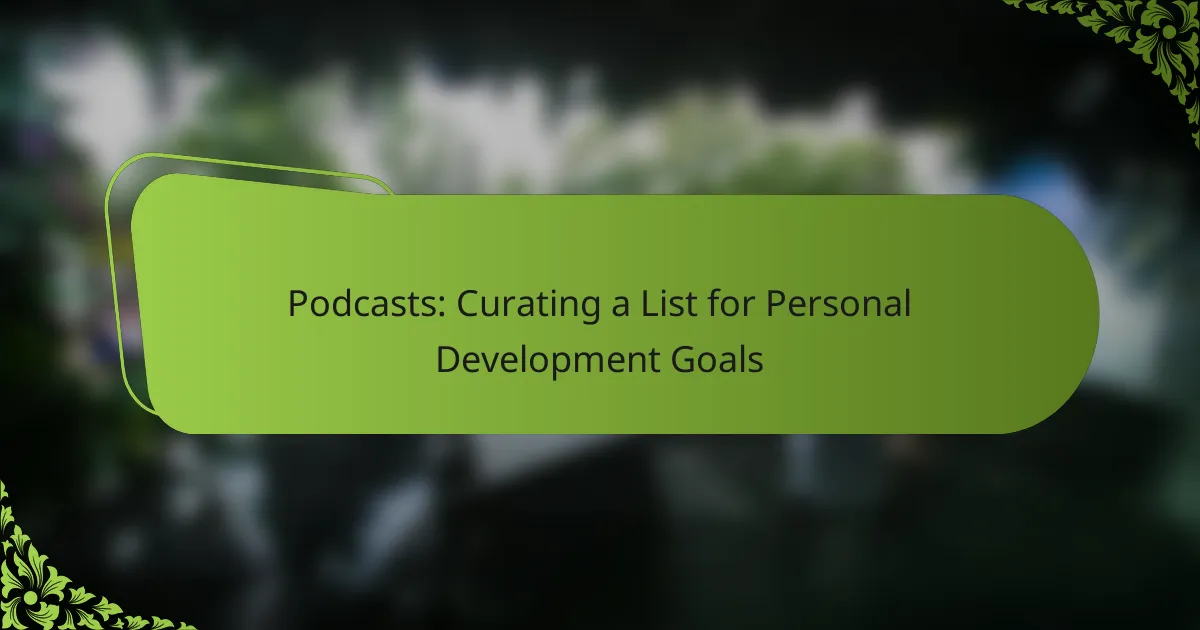Podcasts play a crucial role in enhancing mental health awareness by offering accessible platforms for meaningful discussions and personal stories. By reaching diverse audiences, they make mental health topics more relatable and less intimidating, fostering a sense of community and support. Through authentic conversations and expert insights, listeners gain valuable tools and understanding to navigate their emotional well-being.
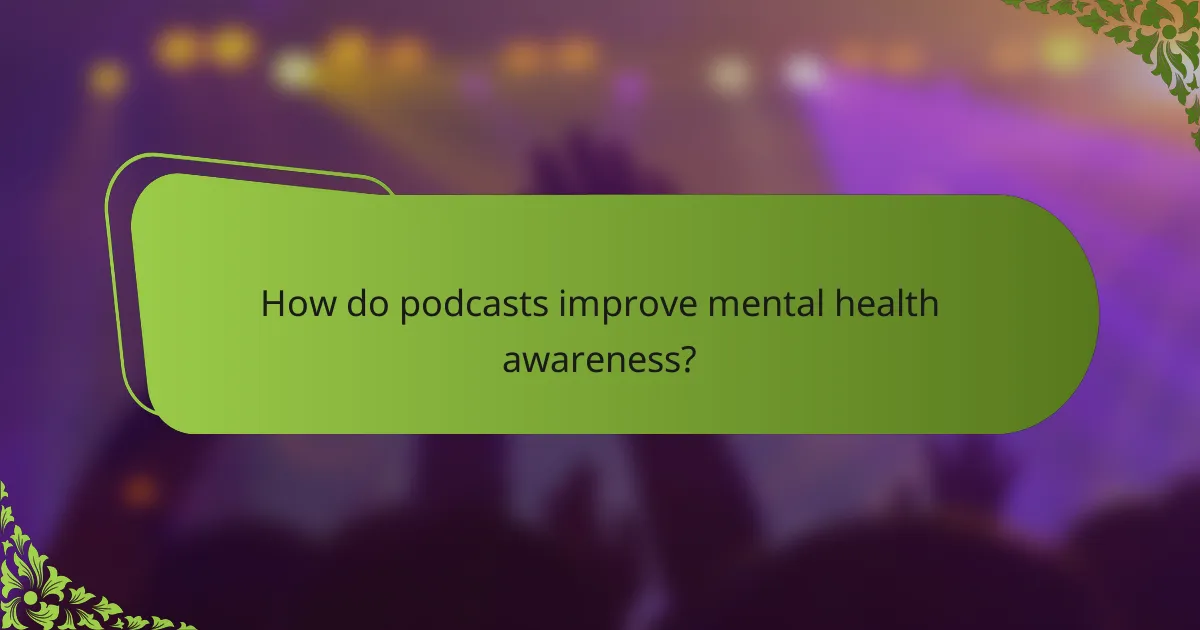
How do podcasts improve mental health awareness?
Podcasts enhance mental health awareness by providing accessible platforms for discussions, personal narratives, and expert insights. They reach diverse audiences, making mental health topics more relatable and less intimidating.
Increased accessibility to mental health discussions
Podcasts make mental health discussions widely accessible, allowing listeners to engage with content anytime and anywhere. This flexibility encourages individuals who may not feel comfortable attending in-person events to explore these topics in a private setting.
Many podcasts are available for free, which removes financial barriers and enables a broader audience to access valuable information. With a variety of formats and styles, listeners can find shows that resonate with their personal experiences and preferences.
Reduction of stigma through personal stories
Sharing personal stories in podcasts helps reduce the stigma surrounding mental health issues. When hosts or guests openly discuss their struggles, it normalizes these experiences and encourages others to share their own.
Listeners often relate to these narratives, which fosters a sense of community and support. This connection can empower individuals to seek help and engage in conversations about mental health without fear of judgment.
Engagement with expert insights and advice
Podcasts frequently feature mental health professionals who provide expert insights and practical advice. This access to qualified opinions helps listeners understand complex topics and learn coping strategies that can be applied in their daily lives.
Engaging with experts through podcasts allows for a more informal and approachable exchange of information. Listeners can benefit from evidence-based practices and tips that are often presented in an easily digestible format.

What are the most impactful mental health podcasts?
Some of the most impactful mental health podcasts include those that provide authentic conversations, expert insights, and personal stories. These podcasts help listeners understand mental health issues and foster a sense of community and support.
The Mental Illness Happy Hour
The Mental Illness Happy Hour is a podcast hosted by comedian Paul Gilmartin, focusing on mental health and illness through humor and candid discussions. Each episode features guests sharing their personal experiences with mental health challenges, which helps to destigmatize these topics.
This podcast encourages listeners to embrace vulnerability and find solace in shared experiences. It also provides resources and insights into various mental health conditions, making it a valuable tool for both individuals struggling with mental health and their loved ones.
Therapy Chat
Therapy Chat, hosted by Laura Reagan, explores the nuances of therapy and mental health through interviews with professionals and discussions on various therapeutic approaches. The podcast aims to educate listeners about different modalities and how they can be applied in everyday life.
Listeners can gain insights into topics like trauma, mindfulness, and self-care. This podcast is particularly useful for those considering therapy or looking to deepen their understanding of mental health practices.
Unlocking Us with Brené Brown
Unlocking Us with Brené Brown delves into the complexities of human emotions and relationships, emphasizing the importance of vulnerability and connection. Brené Brown, a renowned researcher and author, shares her insights and interviews guests from various fields, making mental health topics accessible and relatable.
This podcast encourages listeners to embrace their imperfections and fosters a sense of community through shared stories. It is a great resource for anyone looking to enhance their emotional intelligence and improve their mental well-being.
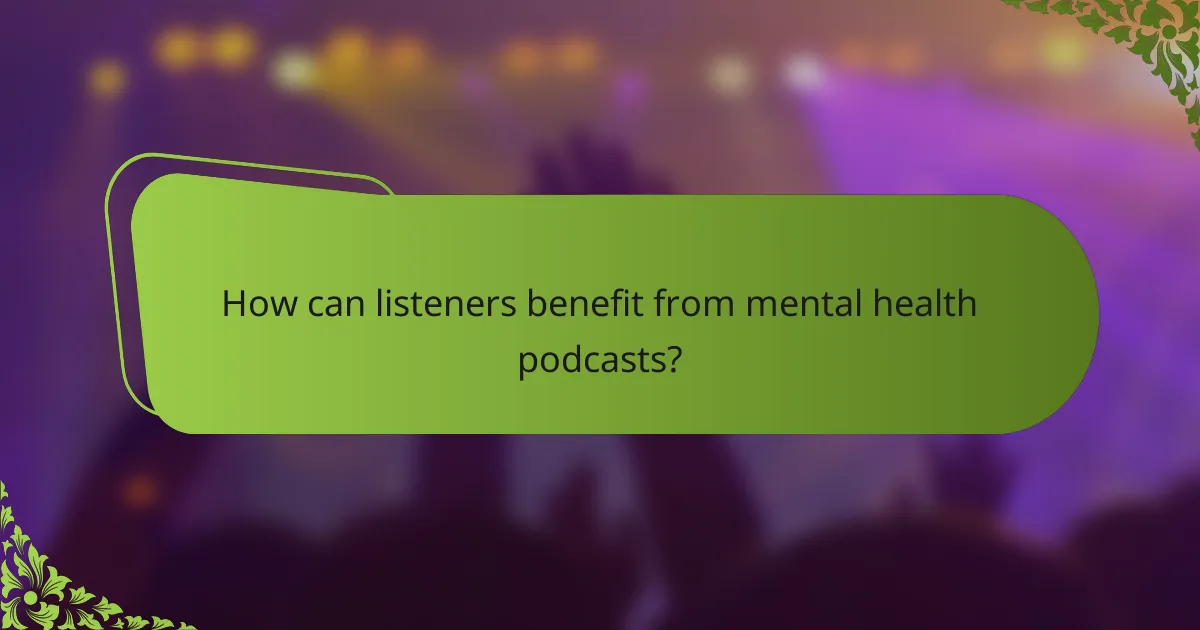
How can listeners benefit from mental health podcasts?
Listeners can gain valuable insights and support from mental health podcasts, which often cover a range of topics related to emotional well-being. These podcasts can enhance understanding, foster community, and provide practical tools for managing mental health challenges.
Enhanced understanding of mental health issues
Mental health podcasts often feature experts discussing various conditions, symptoms, and treatment options, which can deepen listeners’ understanding. This knowledge helps demystify mental health issues, making them more relatable and less stigmatized.
For example, a podcast episode on anxiety might explain its physiological effects, common triggers, and how it manifests differently in individuals. Such insights can empower listeners to recognize symptoms in themselves or others, leading to earlier intervention and support.
Community support through shared experiences
Many mental health podcasts include personal stories from hosts or guests, creating a sense of community among listeners. Hearing others share their struggles can reduce feelings of isolation and encourage individuals to seek help or share their own experiences.
Listeners often find comfort in knowing they are not alone in their challenges. Engaging with podcast communities, whether through social media or listener forums, can foster connections and support networks that enhance overall well-being.
Practical coping strategies and tools
Podcasts frequently offer actionable coping strategies that listeners can implement in their daily lives. These may include mindfulness exercises, breathing techniques, or journaling prompts designed to manage stress and anxiety.
For instance, a podcast might guide listeners through a simple meditation practice or suggest a daily gratitude exercise. By integrating these tools, individuals can develop healthier habits and improve their mental resilience over time.
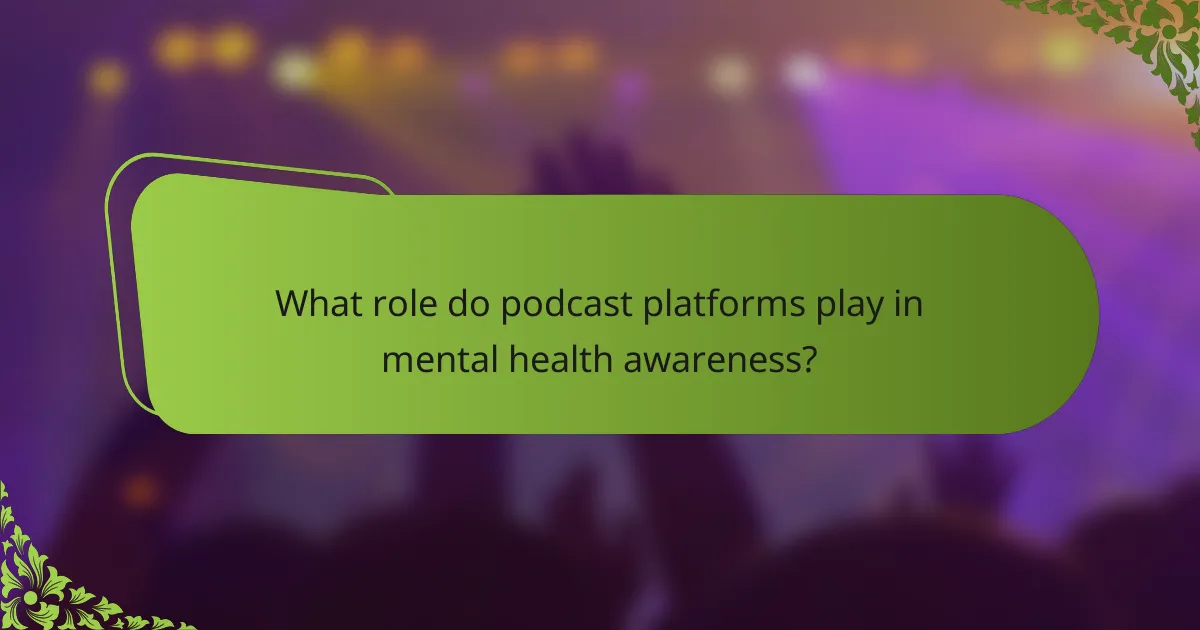
What role do podcast platforms play in mental health awareness?
Podcast platforms serve as vital channels for increasing mental health awareness by providing accessible and diverse content. They enable creators to share personal stories, expert insights, and practical advice, reaching a broad audience and fostering open discussions about mental health issues.
Distribution of diverse mental health content
Podcast platforms host a wide variety of mental health content, ranging from expert interviews to personal narratives. This diversity allows listeners to find perspectives that resonate with their experiences, making mental health topics more relatable and less stigmatized.
Listeners can explore genres such as self-help, therapy discussions, and mental health advocacy. For instance, shows focused on anxiety management or depression recovery can provide actionable strategies and community support, enhancing listener engagement and understanding.
Partnerships with mental health organizations
Many podcast platforms collaborate with mental health organizations to amplify awareness campaigns and provide credible resources. These partnerships often result in special episodes or series that highlight specific mental health issues, offering expert insights and promoting available services.
For example, a podcast may partner with a national mental health charity to create content around mental health awareness months, providing listeners with information on local resources, hotlines, and support groups. This collaboration not only educates the audience but also encourages them to seek help when needed.
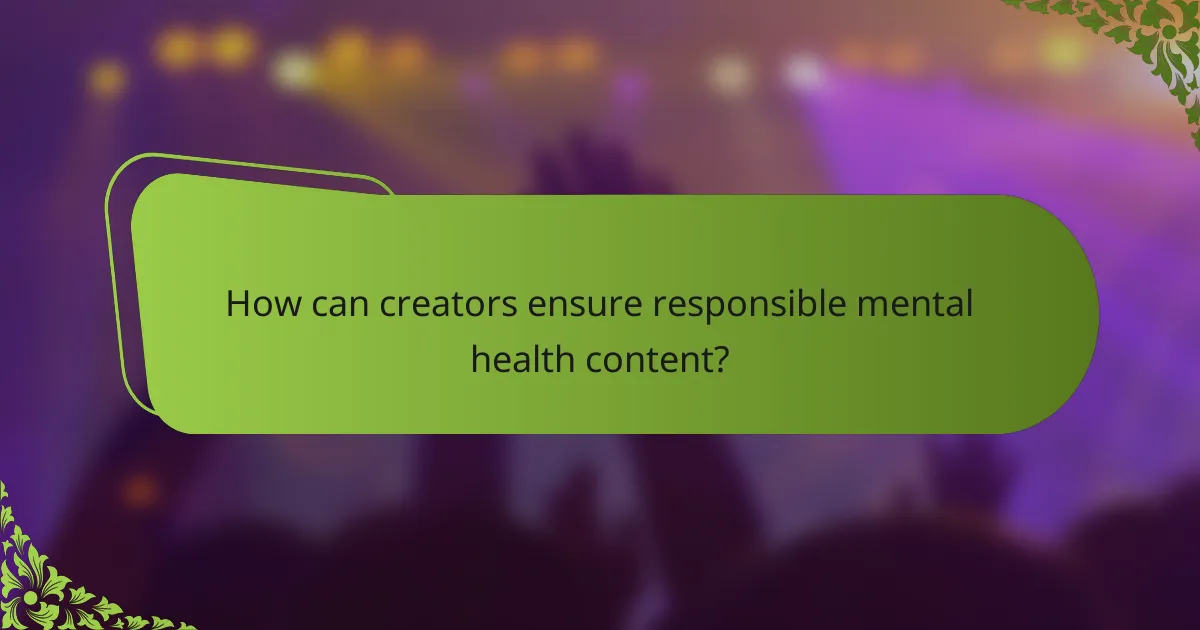
How can creators ensure responsible mental health content?
Creators can ensure responsible mental health content by collaborating with mental health professionals and prioritizing accurate information. This approach helps to provide audiences with reliable insights and resources, fostering a supportive environment for discussions around mental health.
Collaboration with mental health professionals
Working with mental health experts is crucial for creators aiming to produce responsible content. These professionals can offer insights into the complexities of mental health issues, ensuring that the information shared is accurate and sensitive to the needs of listeners.
Creators should consider inviting mental health professionals as guests on their podcasts or consulting them during the content creation process. This collaboration can enhance credibility and provide listeners with expert perspectives on various topics, from anxiety to depression.
Fact-checking and resource sharing
Fact-checking is essential to maintain the integrity of mental health content. Creators should verify the information they present, using reputable sources such as academic journals, mental health organizations, and government health agencies.
Additionally, sharing resources can empower listeners. Providing links to hotlines, support groups, and educational materials can help individuals seek help and learn more about mental health. Including a dedicated resources section in podcast show notes is an effective way to facilitate this support.

What are the challenges faced by mental health podcasts?
Mental health podcasts encounter several challenges that can impact their effectiveness in raising awareness. Key issues include balancing entertainment with educational content and navigating sensitive topics responsibly to avoid harm to listeners.
Balancing entertainment with educational value
Podcasts must engage listeners while providing valuable information about mental health. Striking this balance can be tricky; overly entertaining content may dilute important messages, while excessively dry material can lose audience interest.
Creators should aim for a conversational tone that invites listeners in, using storytelling and relatable experiences to make educational points resonate. Incorporating expert interviews can also enhance credibility while keeping the content engaging.
Navigating sensitive topics responsibly
Discussing mental health issues requires careful consideration to avoid triggering or alienating listeners. Podcasters should be aware of the potential impact of their words and strive to create a safe space for discussions.
Using trigger warnings, providing resources for help, and encouraging open dialogue can help mitigate risks. It’s also beneficial to consult mental health professionals during content creation to ensure accuracy and sensitivity in addressing complex topics.
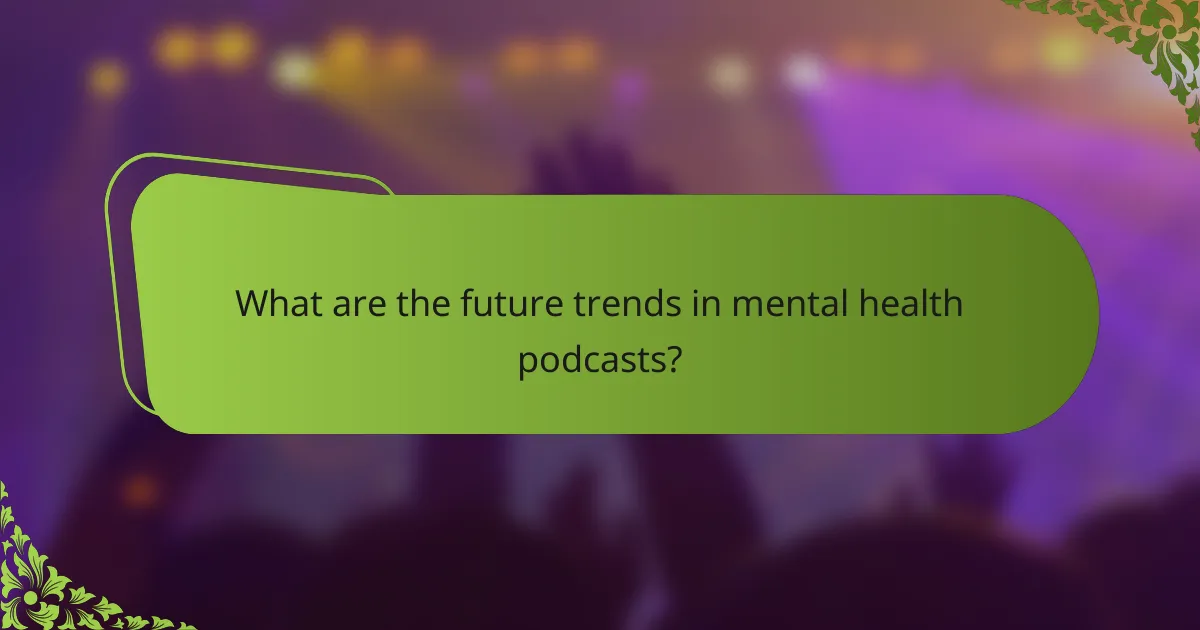
What are the future trends in mental health podcasts?
The future of mental health podcasts is poised for significant growth, focusing on diverse topics and innovative formats. As awareness of mental health issues increases, these podcasts will likely incorporate expert interviews, personal stories, and interactive elements to engage listeners more effectively.
Increased Personalization
Future mental health podcasts will likely offer personalized content tailored to individual listener needs. This could involve using algorithms to recommend episodes based on previous listening habits or integrating listener feedback to shape future topics.
Podcasts may also feature segments where listeners can submit questions or share experiences, creating a more interactive and community-driven atmosphere. This approach can help listeners feel more connected and supported in their mental health journeys.
Integration of Technology
Advancements in technology will play a crucial role in the evolution of mental health podcasts. Features like augmented reality (AR) or virtual reality (VR) may be introduced, allowing for immersive experiences that enhance understanding and empathy regarding mental health issues.
Additionally, the use of mobile apps to accompany podcasts could provide resources such as guided meditations, mood tracking, or access to mental health professionals, making the experience more holistic and supportive.
Focus on Diverse Voices
There is a growing recognition of the importance of diverse voices in mental health discussions. Future podcasts will likely feature a broader range of perspectives, including those from different cultural backgrounds, genders, and age groups, to address the unique challenges faced by various communities.
This inclusivity can help listeners feel represented and understood, fostering a sense of belonging and encouraging open conversations about mental health across different demographics.
Collaboration with Mental Health Professionals
Collaboration between podcasters and mental health professionals will become increasingly common. Experts may participate in episodes to provide evidence-based insights, ensuring that the information shared is accurate and helpful.
Such partnerships can enhance the credibility of podcasts and provide listeners with practical advice and coping strategies, making mental health resources more accessible and reliable.






